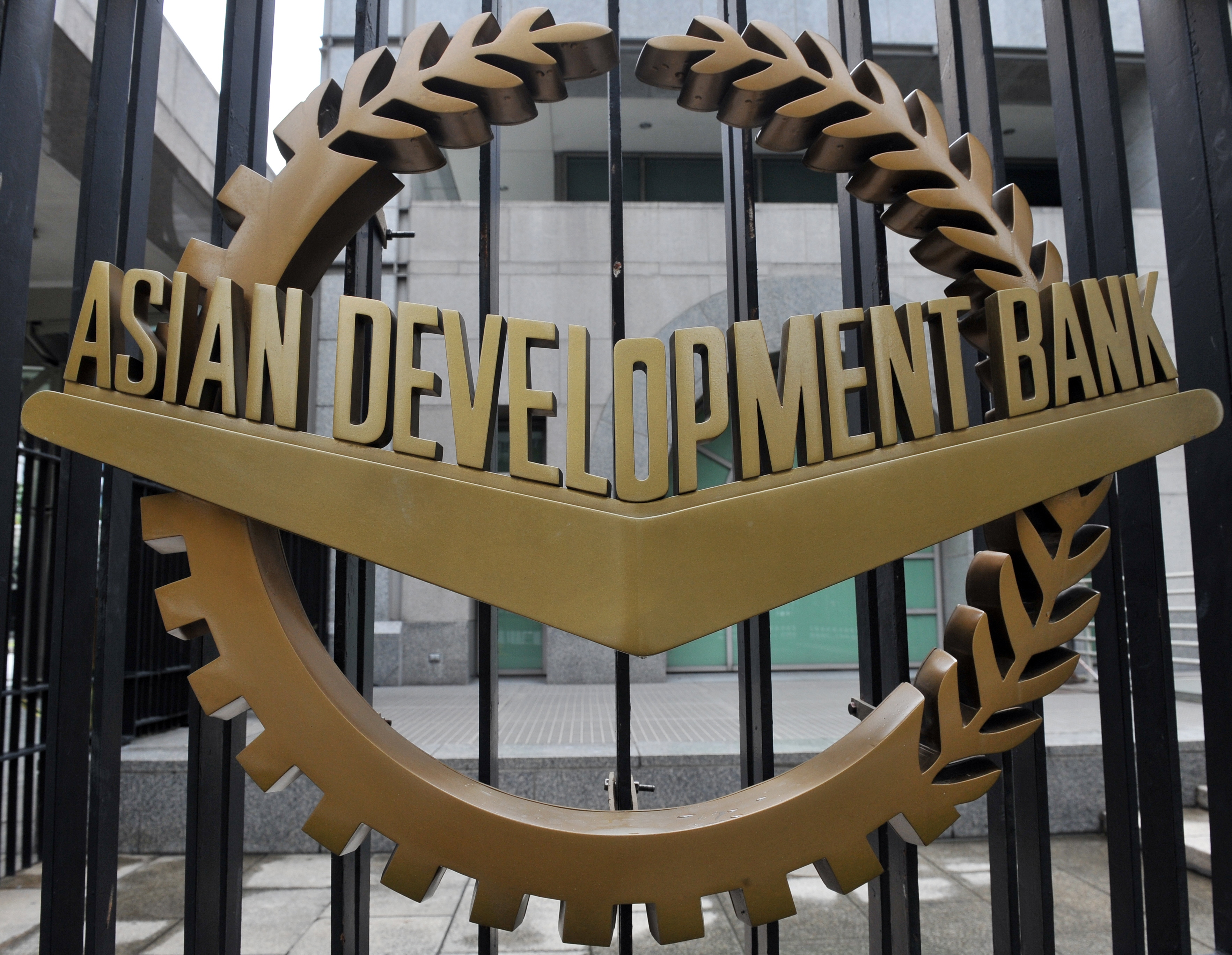
A picture shows the logo of the Asian Development Bank (ADB) displayed outside its headquarters in Manila on September 2, 2010. Photo by TED ALJIBE / AFP
MANILA, Philippines—The Asian Development Bank (ADB) will extend loan financing to the Philippines and other member-countries to keep food supply and prices stable amid looming food insecurity wrought by the continuing destruction of Ukraine by Vladimir Putin and the prolonged COVID pandemic.
“Since the Russian war against Ukraine, global commodity prices and market uncertainty have increased dramatically, creating significant risks to food and nutrition security on top of pre-existing vulnerabilities in many countries,” said seven international financial institutions in a joint action plan to address food insecurity made public last May 18.
“Some countries are now facing physical shortages of food, and many more are experiencing higher food, fuel, and fertilizer prices. More people are hungry and experiencing food insecurity, and more people are at risk of falling into poverty,” the document said.
“Rising food prices are adding to global inflationary pressures, stretching household spending, and reducing fiscal space in government budgets, and come at a time when fiscal space is already narrow and debt vulnerability is high,” it said.
“This latest global shock is exacerbating the sharp increase in both acute and chronic food insecurity in recent years driven by conflict, climate change, and economic downturns, such as those associated with the COVID-19 pandemic. “
“The international financial institutions must come together to respond swiftly to these challenges,” said the seven multilateral lenders, which included ADB, the African Development Bank (AfDB), European Bank for Reconstruction and Development (EBRD), Inter-American Development Bank (IDB), the International Fund for Agricultural Development (IFAD), the International Monetary Fund (IMF), and the World Bank.
In the case of ADB, the action plan said it will “realign existing projects to support the current needs of developing member-countries in developing agriculture value chains and enhancing agricultural competitiveness in and beyond the region.” Among the ADB projects in the pipeline included in this realignment was the upcoming $100.4-million loan for its host-country the Philippines’ Mindanao agro-enterprise development project.
According to ADB documents, this project will “support the government of the Philippines to enhance agricultural diversification and food value chain development in Mindanao through promoting private investments in agro-industry; improving agricultural logistics and services; and enhancing product quality and competitiveness.”
Besides the forthcoming realigned loans for the Philippines, Cambodia and Laos, the ADB will also “provide direct agribusiness lending for staple food working capital and liquidity targeting nearly 300,000 smallholder farmers in 15 developing member-countries with significant food security needs.”
Amounting to $420 million, this direct agribusiness lending support will be made available to the Philippines, Azerbaijan, Bangladesh, Cambodia, India, Indonesia, Laos, Mongolia, Nepal, Pakistan, Papua New Guinea, Sri Lanka, Thailand, Uzbekistan, and Vietnam.
Also, the ADB said it had earmarked $110 million this year for lending support to financial institutions to, in turn, lend to about 30,000 agriculture and food micro, small and medium enterprise (MSME)-borrowers in the Philippines, Cambodia, Georgia, India, Nepal, Pakistan, as well as Uzbekistan.
This was on top of joint ADB-United Nations World Food Program projects in the Philippines and Afghanistan launched this year, which would be expanded to Myanmar and other Asia-Pacific countries.
For the part of the World Bank Group, it said “new food security-related operations are being prepared across regions including in Cameroon, Ghana, Chad, Sierra Leone, Ethiopia, Madagascar, Lebanon, Pakistan, Bangladesh, Kyrgyz Republic, Moldova, Albania, Georgia, Kazakhstan, Ukraine, Bolivia, Nicaragua, Pakistan, Indonesia, the Philippines, etc.”
In all, the Washington-based World Bank said in a separate statement that up to $30 billion in financing will be injected into new and existing agriculture, irrigation, nutrition, social protection, as well as water projects, in order to bankroll “efforts to encourage food and fertilizer production, enhance food systems, facilitate greater trade, and support vulnerable households and producers.”
“Food price increases are having devastating effects on the poorest and most vulnerable. To inform and stabilize markets, it is critical that countries make clear statements now of future output increases in response to Russia’s invasion of Ukraine,” World Bank Group president David Malpass said.
“Countries should make concerted efforts to increase the supply of energy and fertilizer, help farmers increase plantings and crop yields, and remove policies that block exports and imports, divert food to biofuel, or encourage unnecessary storage,” Malpass added.